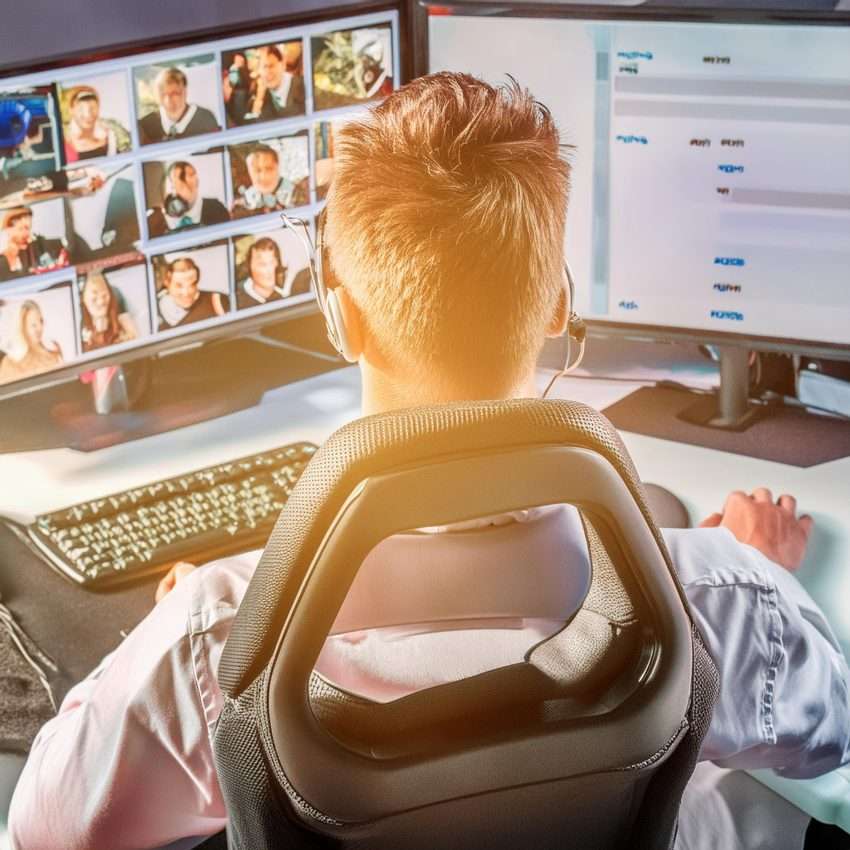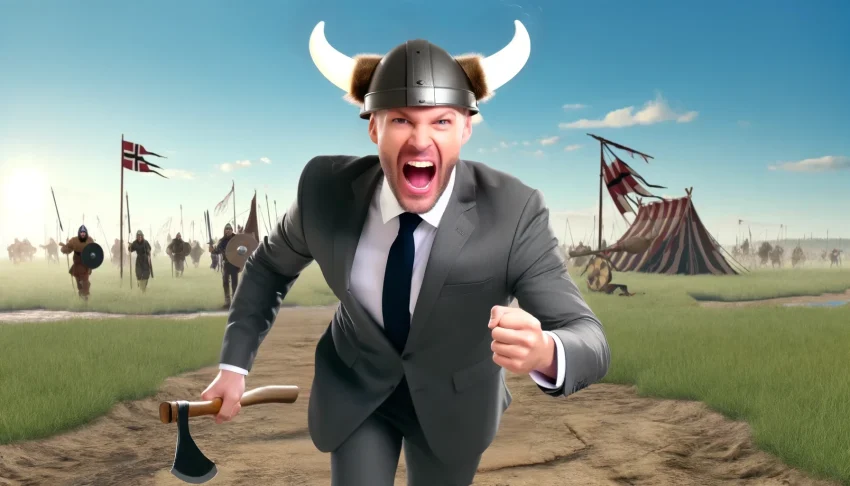‘2100’ is already here. We have not traveled in time. We are talking about the first simulator in the market to train and develop customer service skills. Today, we want to show you how this video game by Gamelearn works.
‘2100’ comes with significant innovations, but maintaining the fundamental pillars of our game-based learning methodology: quality content, simulation and gamification.
This is the way ‘2100’ works:
100% customizable content and situations
‘2100’ presents up to 27 ‘real’ situations so your employees can practice their customer service skills. And companies can customize both the content and simulated situations to adapt them to their corporate messages.
In this way, we respond to one of the great requests by HR and Training and Development departments.
The contents available in ‘2100’ maintain our philosophy: quality content with an eminently practical approach. They are the result of a Gamelearn’s 15 years of experience in corporate training. Resource management, proactivity, decision making, business acumen or the importance of a positive attitude in dealing with our clients are some of the skills that your employees will learn with the customer service simulator.
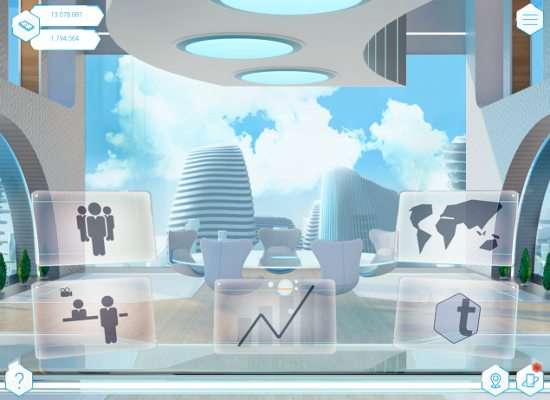
Simulation to improve the customer service skills of your teams
In this video game developed by Gamelearn, the student adopts both the role of customer and manager, so that learning is much more effective because it shows the user the impact of their decisions and actions in all aspects of business (business acumen).
The player starts by choosing the name of their company. Once the virtual company is “baptized”, the simulation starts. The objective of the participant is to make their organization grow until they become its president.
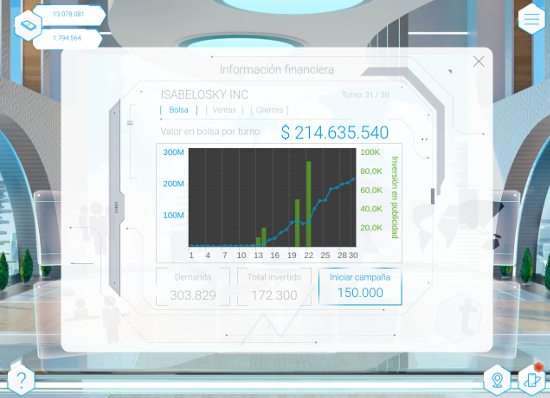
To achieve this goal, the student must take care of their customers and learn to listen to them, assist them and help them. Skills that will be tested in up to 27 ‘real’ customer service situations.
As their staff and organization grow, the student must invest in the growth of their employees or manage the company’s image in social networks, among other actions.
Throughout the game, the student notices how all their decisions, no matter how small, have a great impact on the future of the organization. Thus, a small slip with a customer may lead to significant losses for our business. On the contrary, good management can translate into huge profits and a good corporate image at an international level.
A learning applicable to the job
Just as in the rest of our products, ‘2100’ also guarantees a type of learning which is directly applicable to the job. Thanks to the simulator for the development of customer service skills, the student learns, trains and develops the following skills:
- Self-confidence
- Self-control
- Self-awareness
- Information search
- Coaching
- Efficient communication
- Flexibility
- Conflict management
- Initiative
- Innovation and creativity
- Integrity
- Negotiation
- Problem resolution
- Pressure tolerance
- Decision making
- Customer service
In this way, the student puts all these skills into practice in up to 27 ‘real’ customer service situations. As a result:
- They improve their empathy, initiative, proactivity and management of conflict situations.
- They develop their ‘business sense’ or business acumen.
- They learn techniques and tools to improve the quality of customer service.
- They get to know the impact that a good customer service strategy has on all areas of the company.
- They understand the importance and impact of assessment and customer feedback.
The video game: a trip to the future
How to blend all this in a single video game? This time, Gamelearn has chosen to move the graphic adventure to the future. Specifically, the student is transported to the year 2100 and must start from scratch in a large corporation of the future.
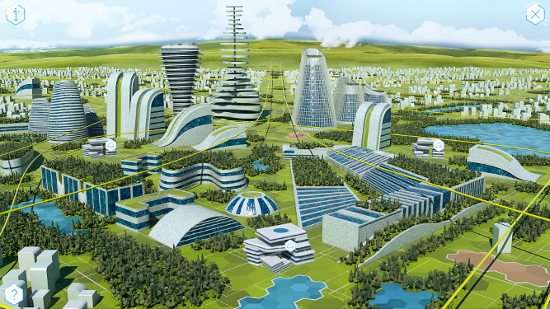
Their goal; to grow and eventually become its president. The success or failure of the student will depend on their ability to assist, listen to and solve the problems of their customers.
The gamification techniques included in this customer service simulator are key to enhancing the student’s engagement.
The gamification techniques in ‘2100’, apart from storytelling, are:
- Ranking so that users will be able to compete with each other and thus increase their motivation.
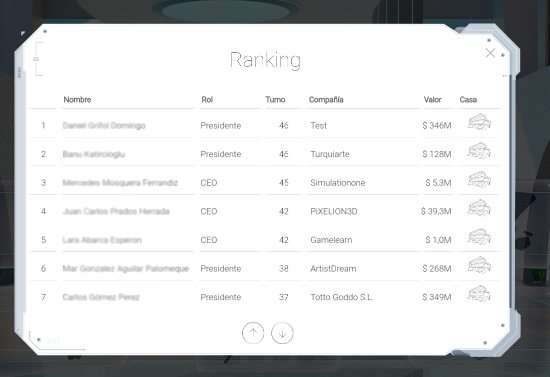
- Levels. This time, this gamification technique is represented by the rating or valuation made by the company’s virtual customers. The objective of the student is to improve this score as they progress in the game, with a maximum of 5 points.
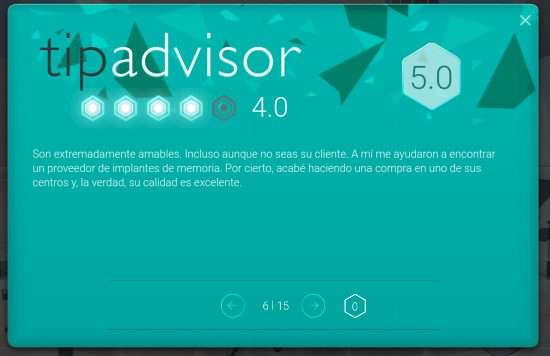
- Badges. In ‘2100’, personal rewards are represented on two levels:
- 1. Virtual company: As we advance in ‘2100’, the student observes how their company evolves thanks to their customer service skills. This will contribute to its economic growth, so they will need to invest in the expansion of the company by creating new subsidiaries in different countries around the world.
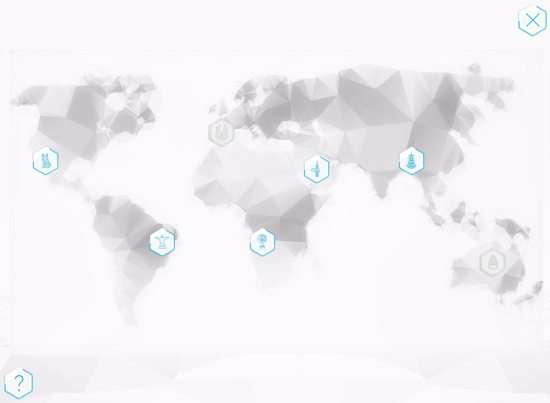
- 2. Personal life: As the student moves up the corporate ladder, their life will also improve, with all its luxuries: housing, estate, cars, whims, technological products of the latest generation…
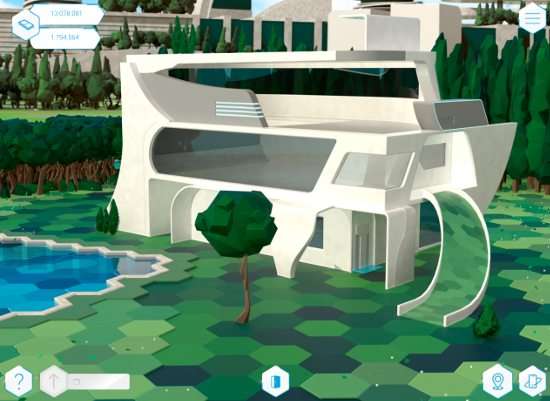
Customer service training accessible to every company
‘2100’ has the same technical specifications as the rest of serious games and is already part of Gamelearn’s game-based learning platform.
Thus, the first simulator for the development of customer service skills has been developed in HTML5 and Javascript, allowing it to be multi-device: PC, tablet, smartphone…
In addition, 3D modeling is maintained and access to the video game (through the platform) is done through a web browser, making it easier to implement the course in video game format by the company.
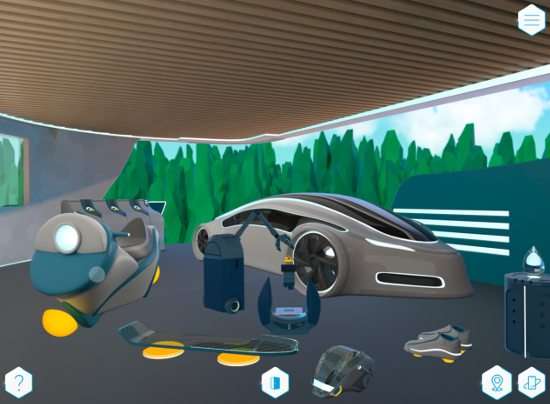
‘2100’ is aimed at any employee who has continuous or direct contact with the customer and at those professionals with management responsibility who need to understand the impact of customer service at the organizational level:
- Customer Service Departments.
- Sales and After-sales Departments.
- Marketing and Communication Departments.
- Customer Service personnel in offices, establishments or points of sale.
- Phone operators.
- Heads of Customer Experience or Customer Success Departments.
- Reception staff at Hotels and Events.
- All professionals in direct contact with the customer in any stage of the process: from pre-sale to after-sale, either face to face, by telephone or via email.
‘2100’ Official Trailer
Trailer 2100 (English) from Gamelearn on Vimeo.
Welcome to the future. Welcome to 2100.

